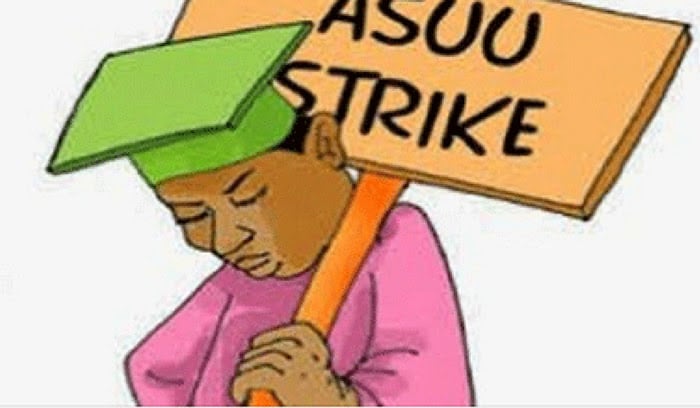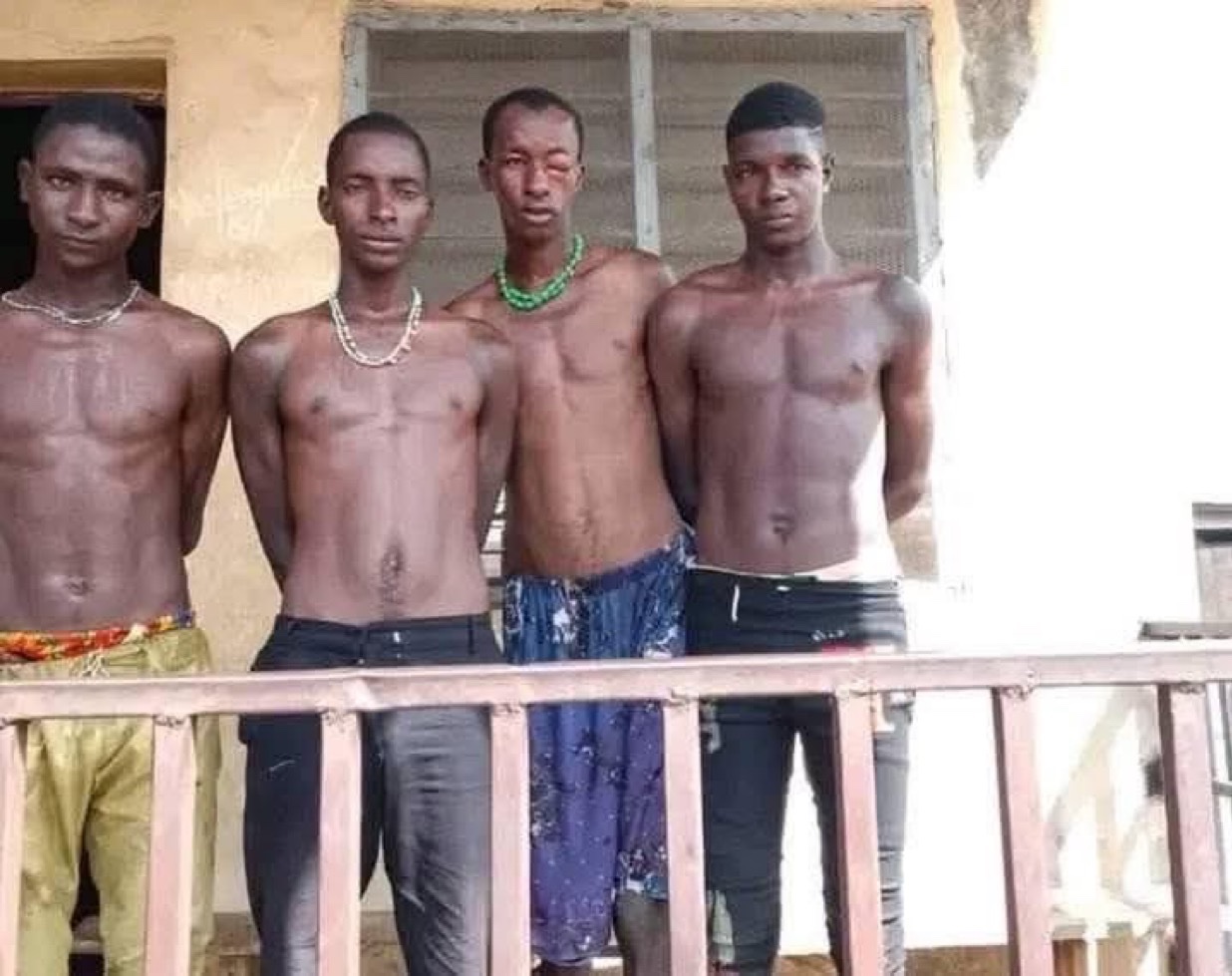
“A Fire Truck Hit Them and Left Them There to Die” — Popular TikToker ‘Hi I’m Abdullahi’ Seeks Justice After Tragic Loss of Three Brothers in Abuja

In a heartbreaking and tragic incident that has sent waves of grief and anger through social media and beyond, popular TikTok content creator known as “Hi I’m Abdullahi” is demanding justice after losing three of his brothers in a devastating accident in Abuja. The incident has sparked widespread outrage and raised serious questions about accountability, emergency response, and road safety in Nigeria’s capital city.
The story unfolded on what started as an ordinary day but ended in unimaginable loss. Abdullahi, whose online presence has earned him a loyal following across TikTok, revealed the tragic details in a viral video that has since drawn millions of views and heartfelt condolences. According to Abdullahi’s emotional testimony, his three brothers were crossing a busy road in Abuja when a fire truck, reportedly speeding and without warning, collided with them. The severity of the crash was such that all three brothers sustained fatal injuries. Even more shocking, the fire truck allegedly did not stop to help or check on the victims but fled the scene, leaving them to suffer and ultimately perish.
Abdullahi’s video, filled with grief and frustration, quickly became a rallying cry for justice and better enforcement of traffic laws. The phrase “A fire truck hit them and left them there to die” resonated deeply with viewers and became a trending hashtag across Twitter and Instagram, as Nigerians and people worldwide expressed their solidarity with Abdullahi and condemnation for what many see as a grave injustice.
This incident has thrown a spotlight on several critical issues facing Abuja and Nigeria at large. Firstly, it raises questions about the conduct and responsibility of emergency service vehicles on Nigerian roads. Fire trucks, ambulances, and police vehicles are expected to uphold the highest standards of safety and care, especially given their critical roles in saving lives. The fact that a fire truck is alleged to have caused such a fatal accident and then fled the scene is both shocking and deeply troubling. It suggests a worrying lapse in the accountability and discipline expected of those entrusted with public safety.
Moreover, the tragedy exposes broader problems related to road safety in Nigeria’s capital. Despite various government efforts to improve traffic management, accidents remain frequent and often deadly. Pedestrian safety, in particular, has been a persistent concern. Roads are often congested, traffic rules inconsistently enforced, and infrastructure lacking, making it perilous for pedestrians to navigate busy streets. This tragic loss of Abdullahi’s brothers is a stark reminder of the urgent need to address these issues comprehensively.
The response to Abdullahi’s plea for justice has been immediate and overwhelming. Online communities have rallied around him, sharing his story and demanding thorough investigations. Many have called for the government and relevant authorities to identify and hold accountable the driver and officials responsible for the fire truck involved in the accident. There are growing calls for stricter regulations and training for drivers of emergency vehicles to prevent such tragedies from recurring.
Local authorities in Abuja have acknowledged the incident and pledged to launch an investigation. Police statements confirm that inquiries are underway to track down the fire truck and its driver. However, as is often the case in such situations, the public remains cautious, demanding that the investigation be transparent, swift, and result in meaningful action rather than fading into bureaucratic silence.
The incident has also stirred a national conversation about justice for victims of road accidents in Nigeria. Many families who lose loved ones in traffic incidents feel powerless, frustrated by slow investigations and lack of proper compensation or support. Abdullahi’s public profile has helped bring these issues to the forefront, as he channels his grief into advocacy for stronger protections for pedestrians and victims of reckless driving.
Social media users have expressed both sympathy and outrage. Comments pouring in under Abdullahi’s videos include calls for justice, personal stories of similar losses, and demands for systemic reforms in Nigeria’s road safety protocols. The hashtag associated with the tragedy has been used by thousands to raise awareness and keep the story alive in the public eye, signaling a collective refusal to let this heartbreaking incident be forgotten.
Beyond the immediate tragedy, Abdullahi’s story resonates deeply because it shows the human cost behind statistics and news reports of road accidents. Behind every number is a family shattered, dreams cut short, and communities left to mourn. Abdullahi’s brothers were not just victims of a reckless act; they were siblings, sons, and friends whose lives mattered immensely to those who knew them. His emotional plea serves as a reminder that justice is not just about punishment but about acknowledging the pain and ensuring such losses are not in vain.
Experts in road safety and public policy have weighed in, suggesting that this incident should serve as a catalyst for urgent reforms. Recommendations include better training and certification for emergency vehicle drivers, stricter enforcement of traffic laws regardless of vehicle type, improved pedestrian infrastructure, and community awareness programs on road safety. Without such measures, the risk of similar tragedies remains high, leaving more families to suffer preventable losses.
Meanwhile, Abdullahi continues to use his platform to honor the memory of his brothers and advocate for change. His determination to seek justice is not only a personal quest but also a call to society to prioritize human life and safety on the roads. His story has galvanized many Nigerians to demand accountability and better protection for pedestrians, especially vulnerable groups like children and the elderly.
The pain of losing three brothers simultaneously is unimaginable, yet Abdullahi’s courage in speaking out has transformed personal grief into public advocacy. His call for justice reminds us all of the responsibilities we share as members of a community—to protect each other, uphold the rule of law, and ensure that no tragedy is ignored or forgotten.
As the investigation unfolds, the eyes of the public remain fixed on the authorities to see if justice will be delivered. Will the driver of the fire truck be identified and held accountable? Will there be real changes to prevent such a tragedy from happening again? These are questions that Nigerians and Abdullahi himself await answers to with hope and determination.
This tragedy serves as a stark reminder of the urgent need to address road safety comprehensively in Nigeria, ensuring that emergency vehicles fulfill their role as protectors, not threats. Abdullahi’s loss is a call to action—a plea that no family should endure such pain, and that justice must prevail for the lives cut short on the streets of Abuja.


